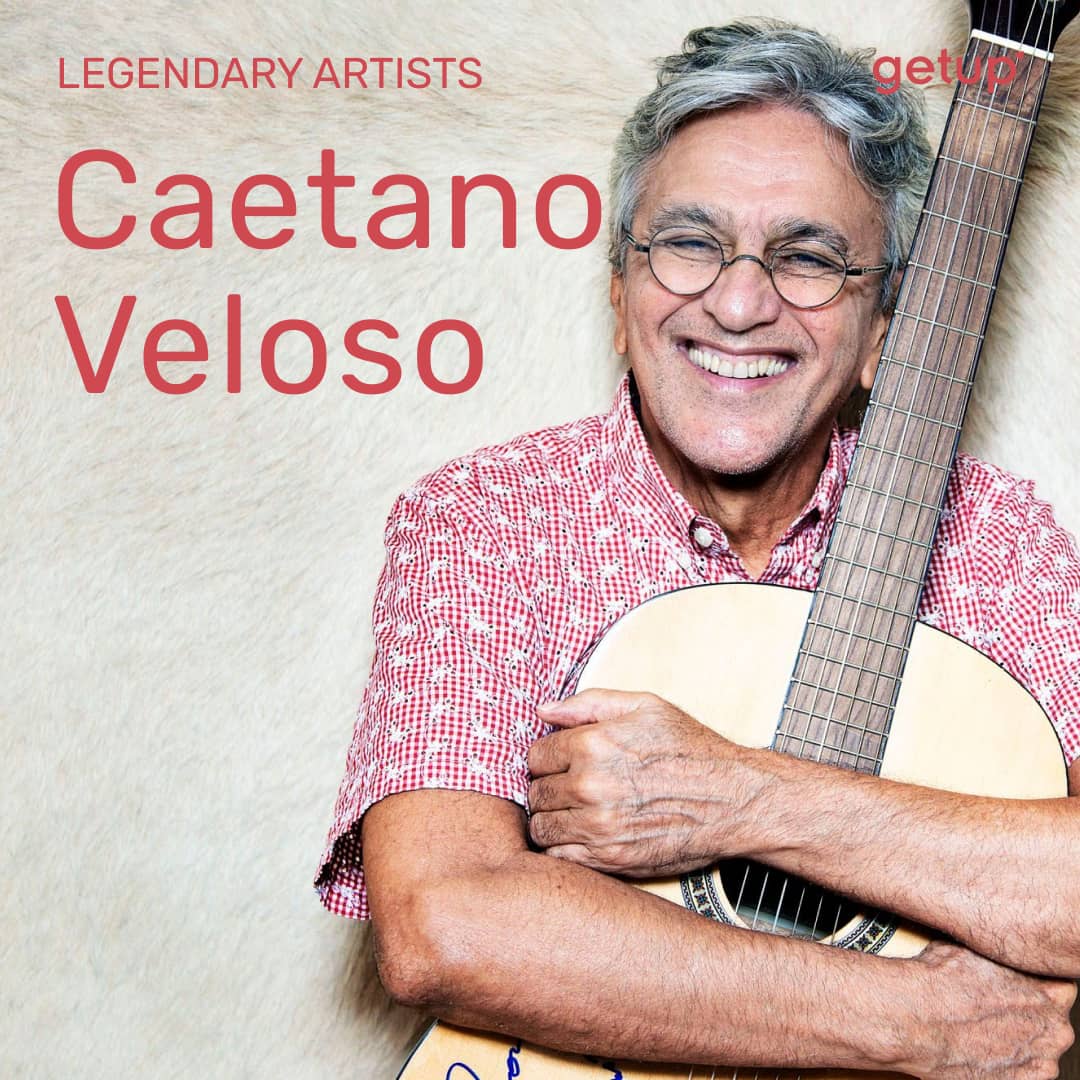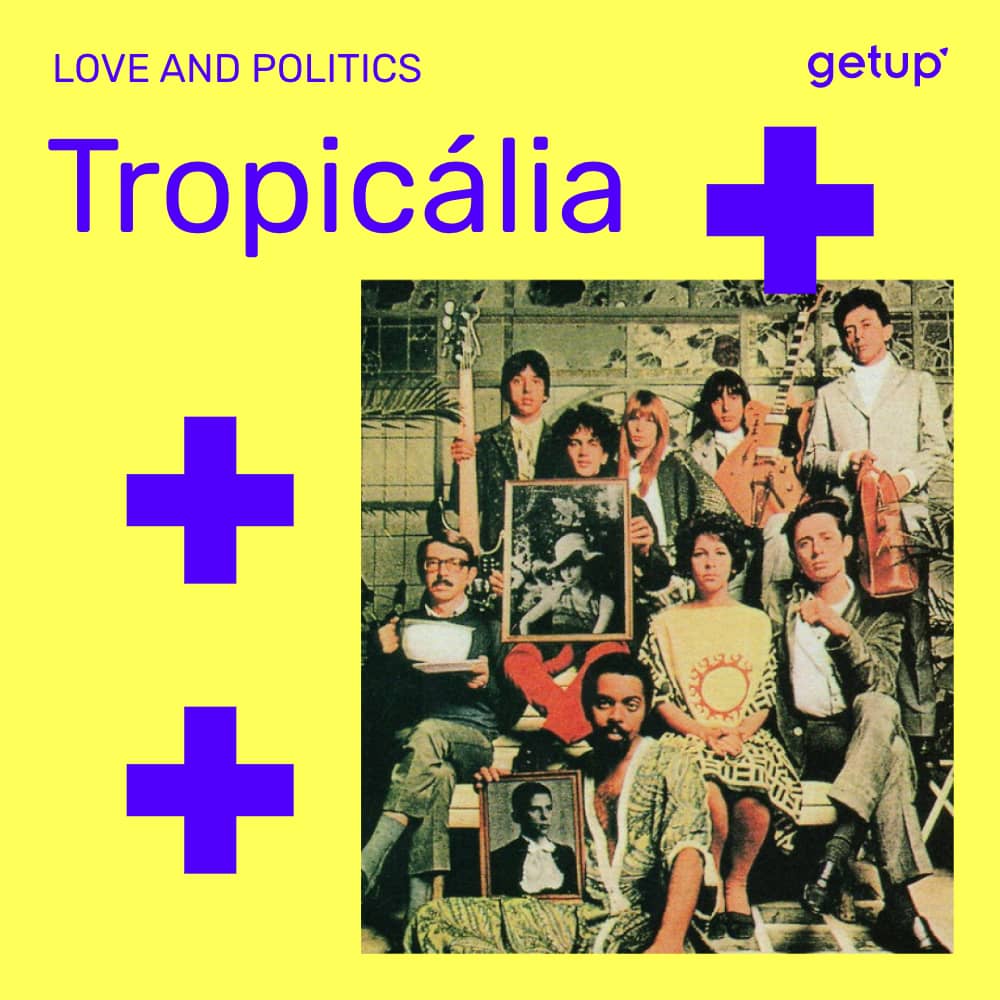Since the mid-1960s, Caetano Veloso’s work has influenced and transformed modern Brazilian music. This is mainly thanks to the artist’s ability to experiment and mix a variety of different musical trends, from João Gilberto’s minimalist bossa and Orlando Silva’s romantic songs, to Zé da Zilda’s harmonious sambas for Mangueira, and the irresistible frevo of the carnival’s elétricos trios. Gifted with a strong stage presence (since Circuladô in 1991, his albums have systematically included a version recorded live), the Bahian is as comfortable playing MPB as he is playing fado, Cuban rumba, Argentine tango, or American pop. On top of all that his countless duets with artists of all generations are always a hit on the radio.
Caetano Veloso made a name for himself creating the Tropicalismo movement on stage in the middle of Brazil’s dictatorship, and for recording its manifesto alongside Gilberto Gil, Gal Costa (who had already had shared billing on his first LP), Tom Zé, Nara Leão, Rogério Duprat, Capinan, Torquato Neto and the Mutantes. The album was entitled Tropicália ou Panis et Circenses. Based on the principle of syncretism between past and present, and inspired by Oswaldo de Andrade’s anthropophagic manifesto, this short-lived protest movement that mixed music, poetry, theatre, cinema, literature and art had a major impact on Brazilian society, leaving it forever changed. Arrested and then exiled to London where he recorded two LPs (Caetano Veloso and Transa), Caetano returned to Brazil in 1972 and the following year, still marked by his prison ordeal, he released Araça Azul, his most ambitious work. The failure of this avant-garde album and a strong need for appeasement brought him back to melody and sobriety, whilst he continued his exploration of traditional cultures. The result is a succession of intimate masterpieces that have become instant classics: Jóia, Bicho, Muito, Cinema Transcendental.
From the 1980s onwards, Veloso’s career reflected his country’s liberation from the military and its hunger for a global sound. While still sounding resolutely Brazilian, the Bahia native has at times taken a more rock or urban road. His many-layered musical universe has been woven with the help of the flashes of inspiration he’s gleaned from international artists such as guitarists Arto Lindsay and Marc Ribot, and the arranger Ryuichi Sakamoto, who helped him push the envelope of his artistic creation and expand the scope of his repertoire. After celebrating the 25th anniversary of Tropicalismo with his colleague Gilberto Gil, Caetano declared his interest in the cinema, inviting himself to Almodovar’s house and – as he did with Fina Estampa – reminding us that he had always been brought up on South American lullabies.
Since music is a family affair for the Velosos, Caetano, who started out in the shadow of his famous younger sister Maria Bethânia, brought his three sons together on stage in 2019 for the Ofertório tour. This acoustic escapade followed an electronic rock trilogy, the latest work prior to the new album Meu Coco.







